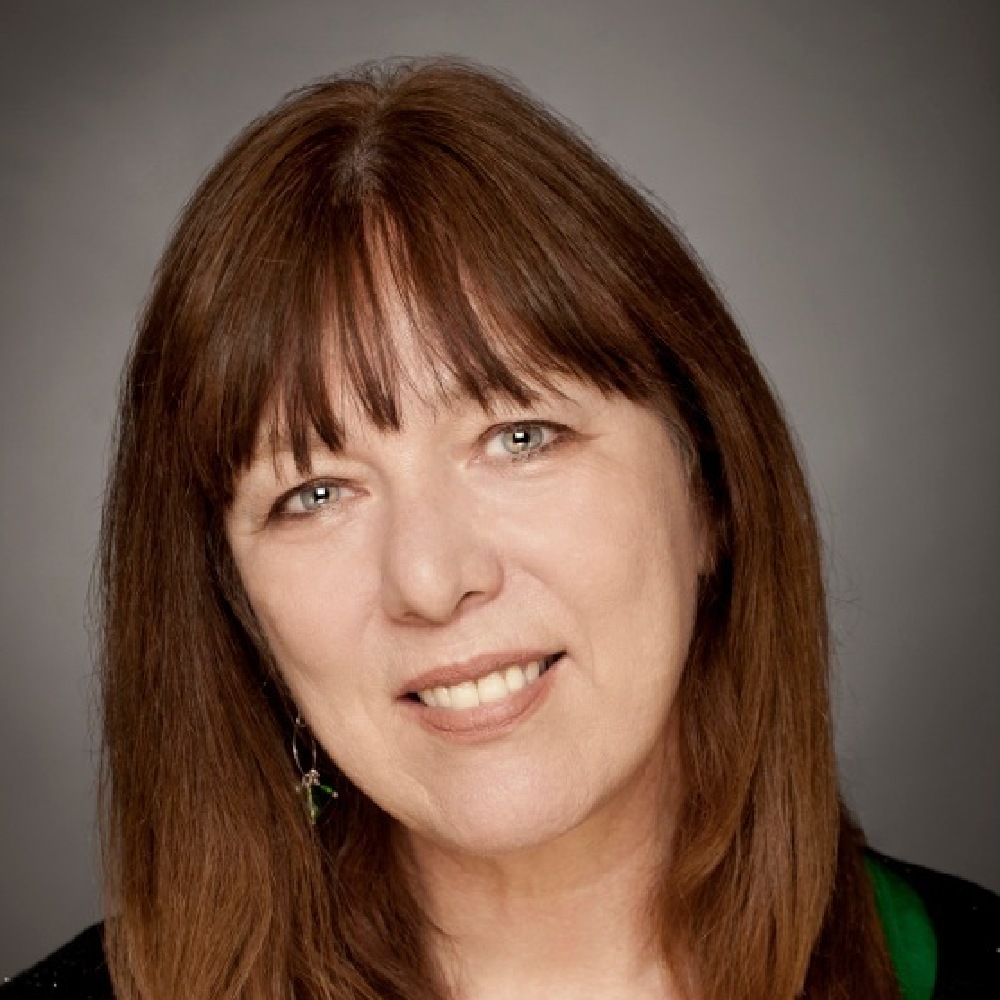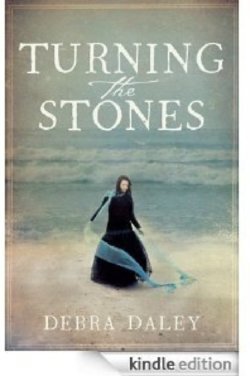
Debra Daley

Turning the Stones is an intensely romantic historical novel set in the mid-18th century. It follows the adventures of a foundling named Em Smith, who serves the ambitious Waterland family at their estate in Cheshire. Em is increasingly troubled by the mystery of her identity––who is she and where did she come from?––and anxious about the vulnerability of her situation. Her employer, the icily glamorous Mrs Waterland, could make Em homeless and destitute in an instant. Em’s already shaky sense of security is destroyed in the most violent way when she is implicated in a horrific crime in London and must flee for her life. Her frantic escape takes her across country to Bristol and onto the high seas, where she finds herself at the mercy of the enigmatic smuggler Captain McDonagh. He is a powerfully attractive man, but is he a match for the potent force that is drawing Em towards a distant shore? She realises that she has felt the presence of this spirit all her life––and following it to its source will reveal the secret of her origins.
The book is set in Georgian England so what can you tell us about the research process into the book?
The 18th century had such a powerful appeal for me even when I was a teenager, the clothes, the wigs, the crazy makeup, the elegant way of speaking, that I sometimes wonder whether I lived in Georgian England in a previous life! I specialised in 18th century English literature at university, so when I came to research Turning the Stones, I already felt very at home in that era, but there were a lot of specifics that needed researching. I think in a historical novel it’s often the small details, the cost of a pint of wine or how many hours it takes to travel in a coach from one town to another, or how you ironed one of those vast billowy gowns, that makes a scene convincing. But at the same time you don’t want to let research get in the way of the story. My research process always involves actually visiting the locations I am writing about. I find I need to soak up the physical presence of the place. I take a lot of photographs of landscapes and make drawings in a sketchbook, which I refer to later when I am writing. I also talk to local people as much as I can to help me get a feel for a place. After the fieldwork is done, I bury myself in the British Library. Reading contemporary 18th century texts like pamphlets and news sheets is great for finding the right slang to use and other kinds of period vocabulary and expressions. My research is pretty detailed, although it’s such a pleasure for a history maniac like me that it doesn’t feel like work. The goal of it is to serve the story, so that I can write the narrative with confidence and hopefully give the reader an immersive experience without the research going, hey, look at me!
How much does novel writing and screenwriting intermingle for you?
I was a screenwriter for several years before I was a novelist, and the storytelling structures I learned while I was writing TV scripts definitely influence the way I approach a novel. I mostly worked in ‘fast-turnaround’ TV drama series, where you have to write scripts quickly with forward-moving storylines. In any case, my natural inclination is towards plot. I think that’s because I grew up in quite a chaotic home environment and I was always yearning for structure. A taut plot has a sense of order and that makes me feel confident as a viewer or a reader that the writer has got everything sorted and is going to take me away on a journey. I’ve always loved that feeling as a reader of starting to read a ripping yarn and knowing that you are in good hands with the author. I learned to craft stories by writing what are called ‘treatments’ for scripts. That’s a scene by scene account of what happens in a plot. There’s nowhere to hide in a treatment. No pages of ‘beautiful’ writing or musing on the state of the world. You just have to get on with it and come up with a primary event, a turning point, a climax, a denouement etc, and populate that storyline with vivid characters. So I still use that technique. I write out the story I want to tell as a series of briefly-described scenes on index cards, which I blu-tack to the wall so that I can visualise the entirety of the narrative. It’s hard work creating that story structure, but once you’ve done that, you know where you are headed and then the writing of the first draft is a pure pleasure. I feel a lot of freedom in writing when I don’t have to be constantly thinking: where is this going?
To what extent has your background in journalism and editing helped you to write your books?
Experience as a journalist helps you to develop an eye for a story or some little detail that you think might capture people’s interest. I’m always thinking about a potential reader, someone to be in cahoots with. For me, writing is incomplete until it has a reader. Secondly, I am used to editing, so I don’t hesitate to throw something out if it gets in the way of the story’s trajectory. On the other hand, I will dig my heels in if I believe that something should not be cut. Journalism has also trained me to write to deadlines and word counts and that discipline is useful in the world of publishing today, which can be ruthless about schedules and about length. But I think the most valuable thing that my work as a features writer has given me is empathy with other people. Over the years I have interviewed hundreds of people from all walks of life. I have had the privilege of listening to many, many life stories and that has given me a deep respect for our shared experience of being human, which is something I hope to communicate in my fiction. When it comes down to it, I am writing now to touch points of common understanding with the reader: this is what I think life is like. Has it been like this for you?
Please tell us a bit about Em Smith.
I am very happy to have had enthusiastic feedback so far from readers about my heroine, Em. I wanted to create a truly romantic, passionate, complex heroine that people can identify with. Like Em, none of us is straightforward in the way we deal with life. We are all a mass of contradictions. I like the fact that Em acknowledges how conflicted she is about things like friendship and love. She also has to struggle financially in ways that I think resonate with our times. Turning the Stones talks a lot about money––who has it, who doesn’t––and about the envy you can feel around people who have stuff that you don’t and who don’t even seem to realise the extent of their entitlements. So Em starts out with a lot of restrictions in terms of social class and finances. She feels helpless and angry. She fears she is a victim. But when she finds herself in a life-threatening situation, her true character begins to assert itself. She has a great sense of humour. Even in her darkest moments, her wit never deserts her. But I think that the most attractive thing about her character is that despite all the adversities she faces, some part of her never stops wanting to be open to possibilities and to being a better person.
What is the appeal of this period in history for you?
Georgian England marks the very beginning of the modern era and popular culture. It was such a colourful and lively age, especially compared to Victorian Britain. And it certainly wasn’t as morally hypocritical. Like today, London’s population was exploding with all kinds of incomers and there was a housing crisis. I love this period for its literature, the rise of the novel and other populist forms of reading like newspapers. Books became much more widely available––the printed word was like the internet of the 18th century. Anyone with a modicum of education could plug into culture. And of course the clothes were fantastic. Both men and women dressed like peacocks.
What is next for you?
I am just emerging into the light like a badger from its cave with the outline of my next novel, which is a murder mystery set in Georgian London. I am aiming to have a draft of that finished by autumn.

